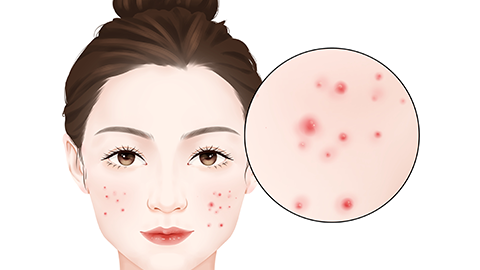How to deal with acne marks and scars on the face
Generally, having numerous acne marks and scars on the face may be caused by improper skin care, inappropriate diet, inflammatory irritation, autoimmune reactions, folliculitis, and other factors. Measures such as general care and medication can help improve the condition. It is advisable to seek medical attention promptly and follow professional medical advice for treatment. The detailed causes are as follows:

1. Improper skin care: During acne breakouts, improper practices such as squeezing pimples, using irritating cosmetics, or failing to clean the skin promptly may damage skin tissue and worsen the formation of acne marks and scars. Avoid squeezing pimples, use gentle and non-irritating skincare products, and maintain clean skin through regular cleansing.
2. Improper diet: Long-term consumption of spicy or greasy foods can irritate the skin and exacerbate the formation of acne marks and scars after breakouts. Additionally, a lack of vitamins and minerals can impair the skin's ability to repair and regenerate. Adjust your diet by consuming more fresh fruits and vegetables and reducing intake of spicy and greasy foods.
3. Inflammatory irritation: Skin inflammation can lead to localized tissue infection and damage, triggering systemic inflammatory responses. Repeated scratching due to itching may result in acne scars accompanied by pain. Under a doctor's guidance, anti-inflammatory medications such as loratadine tablets, levocetirizine hydrochloride capsules, or clindamycin phosphate gel may be used for treatment.
4. Autoimmune response: Some individuals naturally have more reactive immune systems. When their skin is exposed to external stimuli, excessive inflammatory responses may occur, leading to poor acne healing and the formation of acne marks and scars, often accompanied by flaking. Follow medical advice for drug treatments such as vitamin A soft capsules, vitamin C effervescent tablets, or transfer factor capsules to regulate the immune system.
5. Folliculitis: Folliculitis can cause pore blockage, preventing sebum from being discharged properly and triggering inflammation. This inflammation can damage skin tissue, resulting in acne marks and scars accompanied by redness and swelling. As directed by a physician, anti-inflammatory medications such as mupirocin ointment, fusidic acid cream, or compound polymyxin B ointment may be used for treatment.
Maintaining good daily habits and dietary practices can promote skin repair and regeneration.








